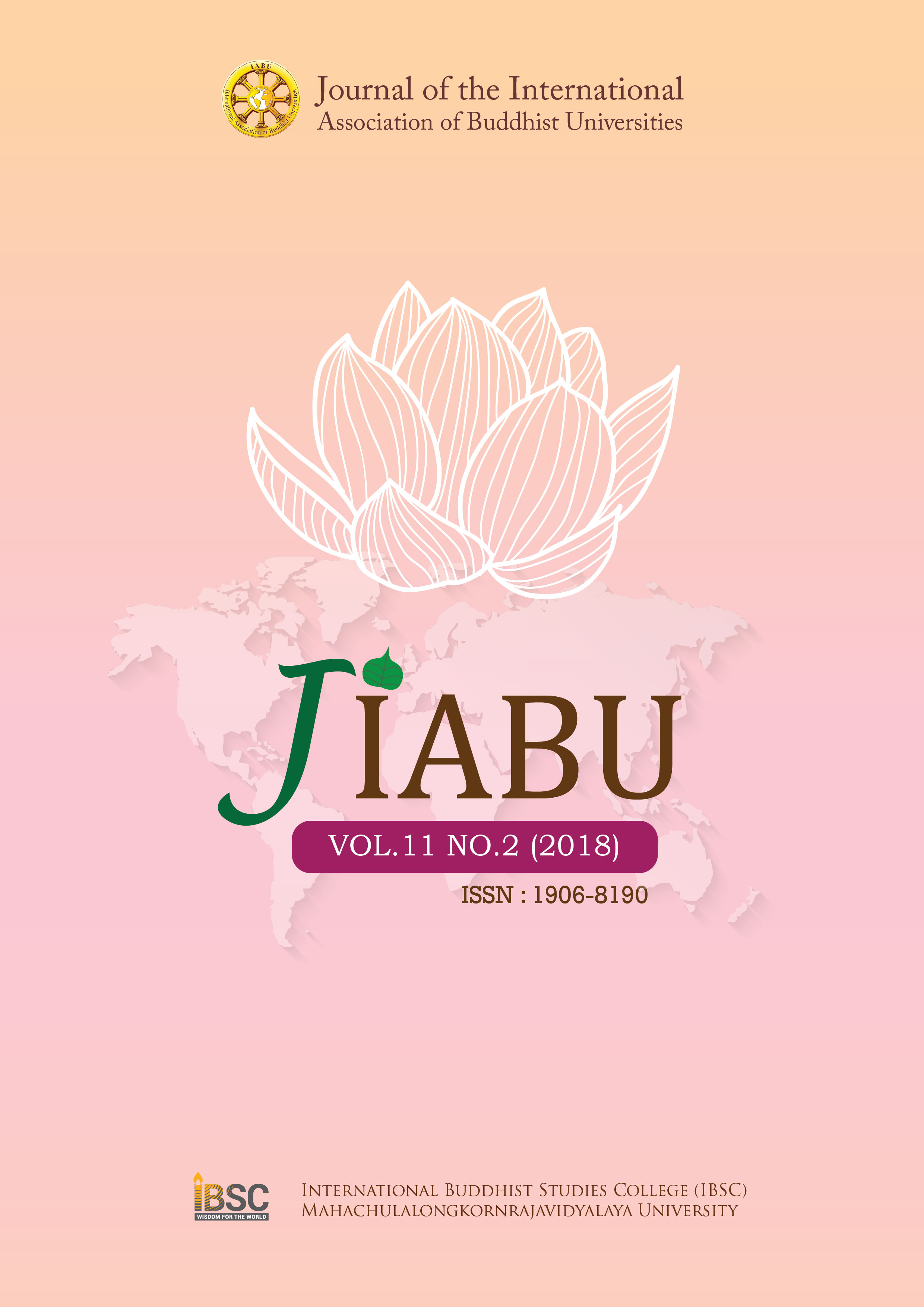An Application of Buddha’s Teachings for Healing Traumatic Mental Disorder
Main Article Content
Abstract
The purpose of this study was to evaluate the concepts of Theravada Buddhism and
its contemporary processes effective on trauma, mental and physical body, and to apply the
knowledge of Theravada Buddhism to healing the Traumatic Mental and Physical Disorder
of a person. `An agitation after Traumatic Mental Disorder (all kinds of traumatic stress
disorders included in TMD) is a general behavioral diffi cult situation which threatens the
preservation of mentally imbalanced and affected persons and caregivers, interrupts the
rehabilitation system, and becomes an excessive oppression on caregivers and guardian.
Preferred skillfulness or moral acts, chanting and listening suttas, concentration of the mind,
and abandoning unwholesome and wrong thoughts, nurturing concentration and its stability,
charity and generosity as an environmental intervention be able to decrease the mental
excitement and Trauma mental disorder by prevailing on positive and wholesome thoughts
of memories and emotional feelings, and recovering mental health and wellness, and also
achieving peacefulness in a mentally disorder person.
Article Details
Views and opinions expressed in the articles published by The Journal of the International Association of Buddhist Universities (JIABU), are of responsibility by such authors but not the editors and do not necessarily reflect those of the editors.
References
S. v. 276.
D. iii. 225.
A. ii. 16.
Vin. iii. 56.
Vism. 84.
S. v. 276.
DhA. iii. 425.
D. iii. 225. A. ii. 16. Note: padhāna is fourfold, viz. saṃvara, pahāna, bhāvana, anurakkhanā
or exertion consisting in the restraint of one’s senses, the abandonment of sinful
thoughts, practice of meditation and guarding one’s character.
I. B. Horner, (tr.), (2000) The Minor Anthologies of the Pali Canon III, Chronicle of Buddhas,
Oxford: PTS.
Bhikkhu Thanissaro (tr.), (2005), Distortion of the Mind, Oxford: PTS.
Bhikkhu Bodhi, (tr.), (2000), The Connected Discourses of the Buddha, Boston: Wisdom
Publication.
Erik Pema Kunsang, (tr.), (2004), Gateway to Knowledge, (North Atlantic Books Vol. 1)
Kathmandu.
T. W. Rhys Davids, W. Stede, (1921), Pali-English Dictionary, Motilal Banarsidass.
Thānissaro Bhikkhu, (tr.), Iddhipada-vibhanga Sutta: Analysis of the Bases of Power”
Thānissaro Bhikkhu, (tr.), (1997), Kevatta Sutta: To Kevatta,


